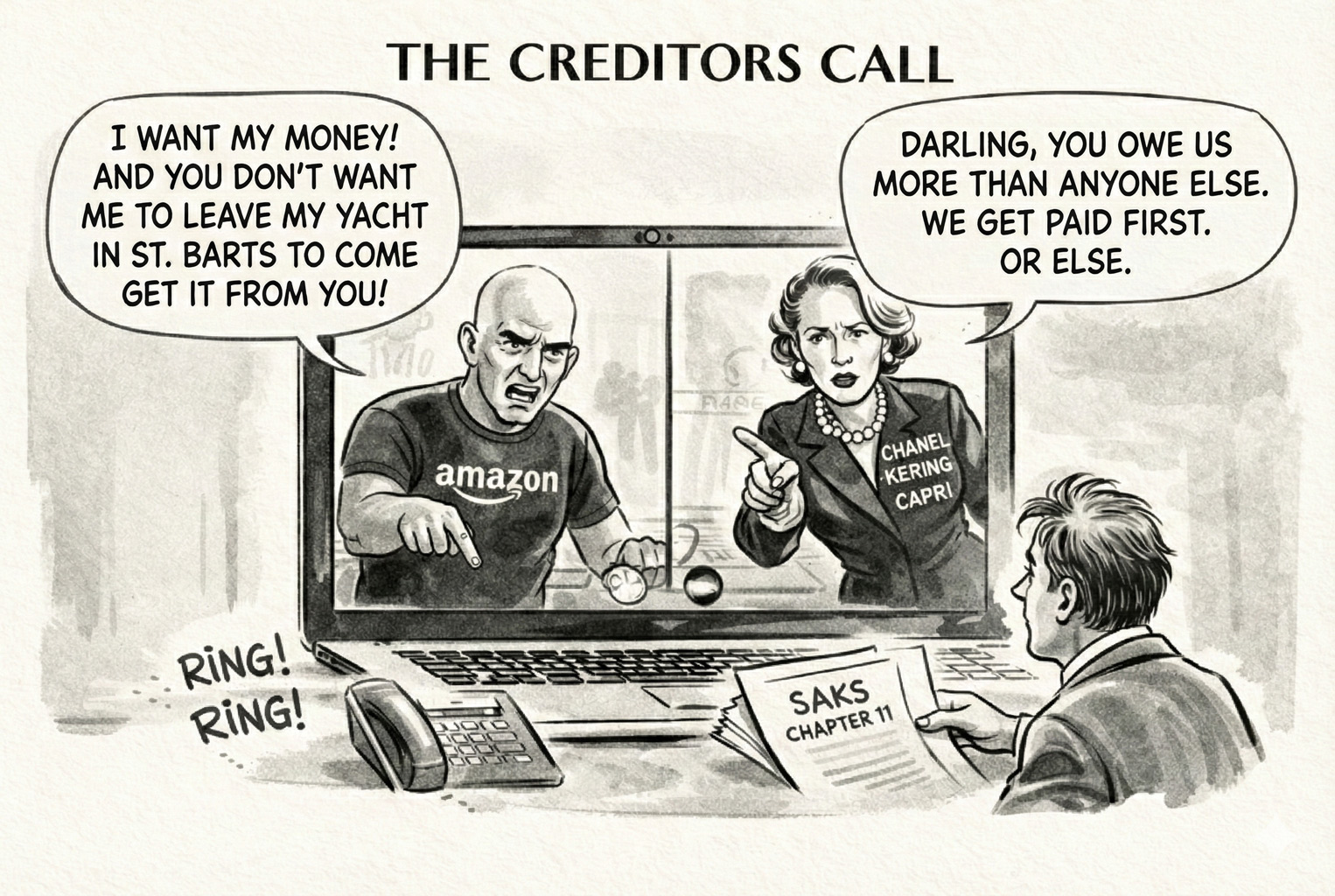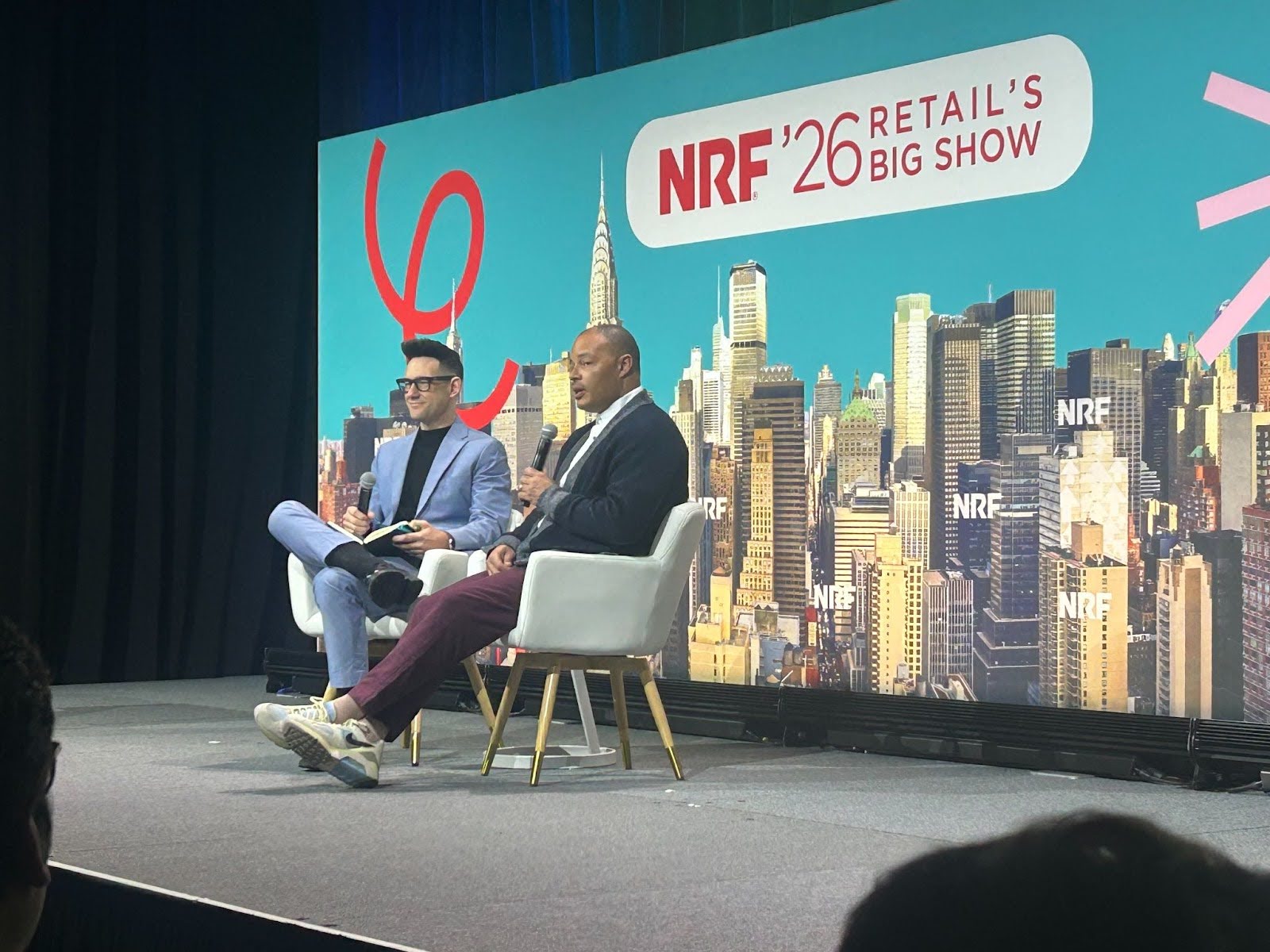
Swedish Synth Lords Play "Name Your Own Ransom"


Welcome to Wednesday, futurists.
Picture this: You're Meta, circa 2021. You've just spent ungodly amounts of money convincing merchants to bring their checkout flows into your walled garden (which probably has a cold plunge). You've built the infrastructure. You've trained the algorithms. You've probably got a PowerPoint deck somewhere with the phrase "frictionless commerce" appearing at least 47 times.
And then, you simply... abandon it all.

Zuck Abandons Cart
Zuck’s social media empire has officially pulled the plug on in-platform checkout, quietly updating help center documentation. No fanfare. No explanation. Just a digital equivalent of "it's not you, it's me" to millions of merchants who bought into the vision of seamless social commerce.
The move represents something deeper than just another Meta pivot (and Lord knows there have been plenty). It's a reminder that in the world of platform capitalism, merchants are always one algorithm update, one executive decision, one "strategic shift" away from having their digital rug pulled out from under them.
Meanwhile, Teenage Engineering (the Swedish audio darling that's never met a price point it couldn't make more expensive) has decided to let customers "name their own price" for their cult-favorite OP-1 Field synthesizer.
It's a fascinating study in contrasts: Meta abandoning the checkout experience they spent years building, while Teenage Engineering turns pricing into a lab rat. One company running away from commerce friction, another embracing it as a feature.
Both moves smell like desperation masked as innovation. Meta's retreat from checkout suggests they've finally realized that people don't actually want to buy things inside the same app where they argue with their high school classmates about vaccine mandates.
And Teenage Engineering's pricing experiment feels less like consumer empathy and more like a very expensive A/B test disguised as Swedish minimalism.
The common thread? Both companies are learning what merchants have always known: there's no such thing as frictionless commerce, only commerce where someone else is eating the friction costs.
The lesson for all of us building in commerce: platforms giveth, and platforms taketh away. Build accordingly.
— Phillip
P.S. Want to understand how the best marketers are breaking free from traditional constraints? Check out Season 4 of Decoded, where we explore the rise of "Positionless Marketing"—because the future belongs to those who refuse to stay in their lane. Available wherever you pretend to be productive during meetings.


Sounds Like Teen Savings. Teenage Engineering is allowing customers to set their own price for the OP-1 portable synthesizer. Although the sliding scale loads at $1,999, visitors can adjust it to $1,399 or up to $9,999 (lol). The new feature is a “delicate experiment,” according to the company, aimed at better understanding consumer mindsets and their overall sentiment regarding price. Teenage Engineering will launch one new “flipped out” offer each month through December, or “until the world is a little bit more stable.”
Vaguely reminiscent of other “name your own price” campaigns by the likes of Everlane and Telfar, this is novel for the luxury audio device brand that is unapologetic about having never run discounts outside of its annual local flea market in Stockholm. It doesn’t ask its customers for input on pricing, and in a much bigger turn of events, it never, ever, uses bubble letter fonts.
Nintendo’s Release Switch-Up. When asked about the looming Switch 2 launch, Nintendo of America’s President says, “It’s complicated.”
US pre-orders for the $449 device have reportedly been canceled, sparking widespread social media ire. The manufacturer also faces several other obstacles, including chip shortages and scalping bots that are snatching up inventory.
Demand for the Switch 2 has surged following “a period of relative calm” in the Trump trade war, but continual uncertainty will make the launch timeline a bit bumpy. Nintendo of America President Doug Bowser (yes, that’s his name) noted that tariffs will have no immediate impact on the device’s pricing. However, aside from that brief statement, there is no clarity on whether pricing will change once the 24% additional tariffs on Japanese exports take effect.
Our Take: Nintendo, like other retail and consumer products companies, is testing the waters. Bowser indicated that, currently, most of Nintendo’s manufacturing is based in Southeast China, but the company is “always looking at other options to ensure that we have a fulfilled supply chain overall.” Meanwhile, Spirit Halloween is having a spooky start to its season due to supply chain constraints.
The reality is that moving supply chain operations isn’t always possible. And if you’re selling on a global stage, there are other operational headaches and expenses to consider. That’s why emerging global brands are seeking other growth paths. If you’re seeking ways to adapt, expand, and thrive amid tariff turmoil, we created a guide that can help.


Old Navy Joins the Lohanaissance. The purveyor of the beloved performance fleece is getting major marketing kudos for its new ad spot featuring culture queen Lindsay Lohan.
The Mean Girls star is adorned in 80s-style workout garb, running a fitness class that even Jane Fonda would love. Also starring Dylan Efron, influencer Quen Blackwell, and Charo, the ad is Old Navy’s first ad campaign in over a decade, and it includes the perfect mix of camp and shameless nostalgia that we recall from yesteryear.
Although many are quick to dismiss the influence of celebrities, Lohan has the perfect combination of tabloid draw, cultural relevance, and nostalgic charm that motivates even elite fashion editors to add Old Navy’s affordable activewear to their carts. Old Navy’s fresh marketing approach allows it to capitalize on consumers’ desire for fresh, affordable apparel. Meanwhile, its higher-priced sister brand Athleta is struggling to keep pace in the category, especially as younger, more premium brands like Alo gain market share.


A Game of Taste. Prebiotic soda brand Poppi has entered the gaming space to generate buzz around its Alpine Blast flavor. As many brands flock to Roblox, Poppi has landed at Fortnite, partnering with licensed studio Creator Corp on a game promoted by Twitch streamer Cody “Clix” Conrod. While the Fortnite minigame helped drive awareness among the platform’s Gen Alpha and Z players, Poppi also launched a web-based retro arcade-style game called Alpine Blasters, which resonated more with millennials and garnered 126,000 plays in just four days.
The Sweet Smell of Expansion. 1-800-FLOWERS.com is the latest company to drink the “lifestyle brand” Kool-Aid. Despite its already robust business, which includes flower delivery, corporate gifting, and product customization, the company plans to expand into lawn and garden items and outdoor accessories. Surge Brands, the brand licensing agent, will help drive these expansion efforts through new partnerships that will enable 1-800-FLOWERS.com to engage its 10 million+ customers beyond key holidays.
Because nothing says "we understand our customers" quite like pivoting from Mother's Day roses to Weber grill accessories.












.svg)
